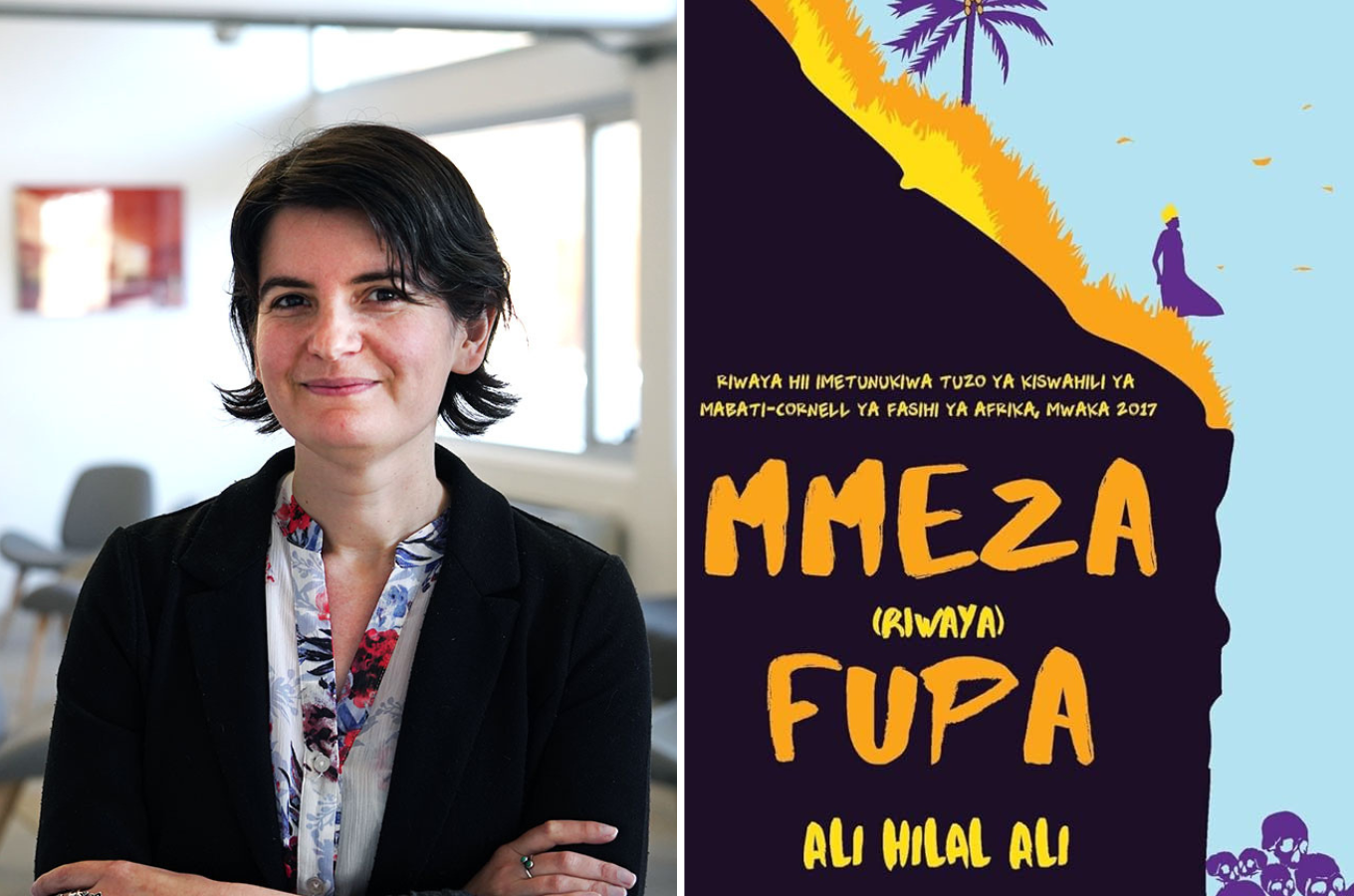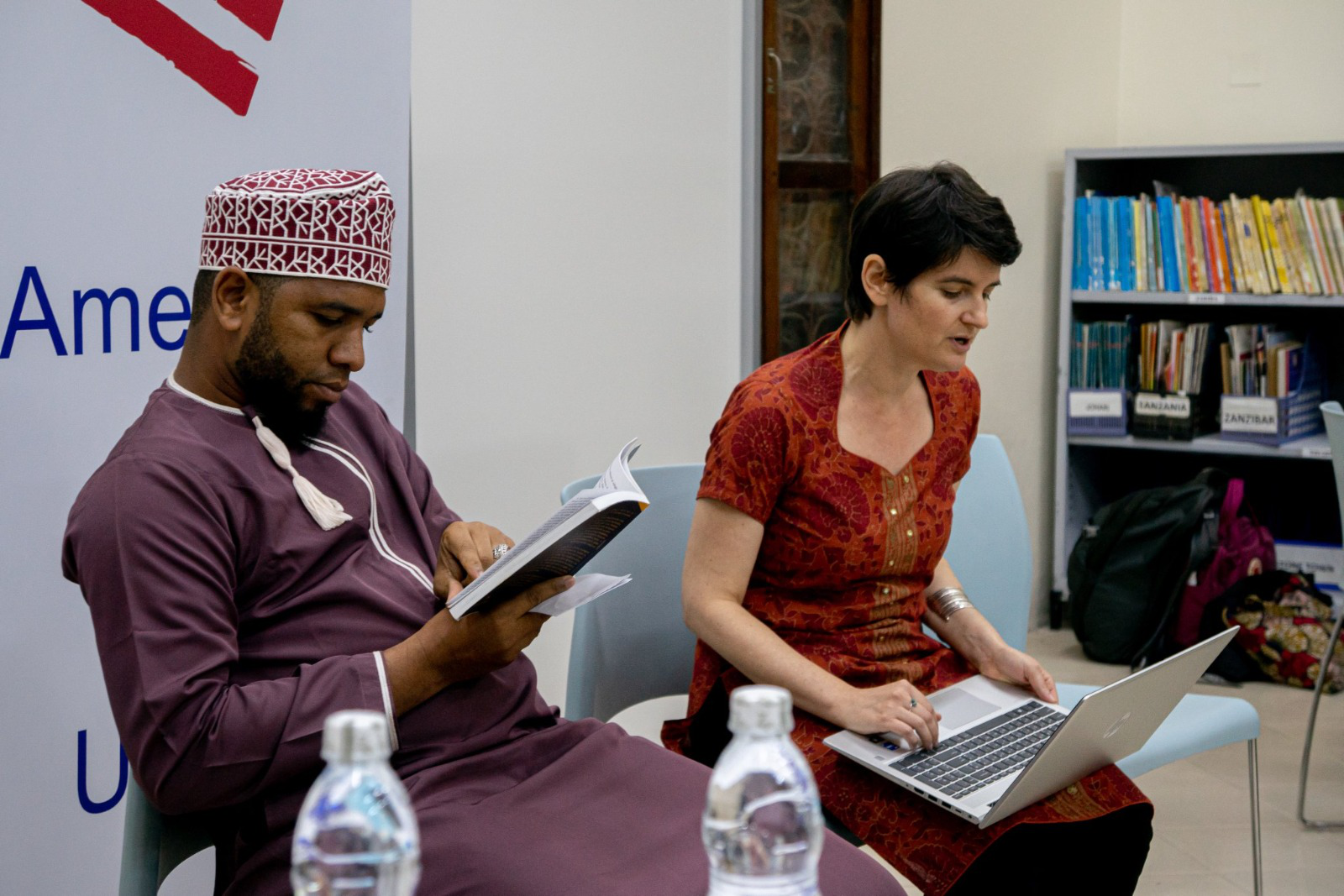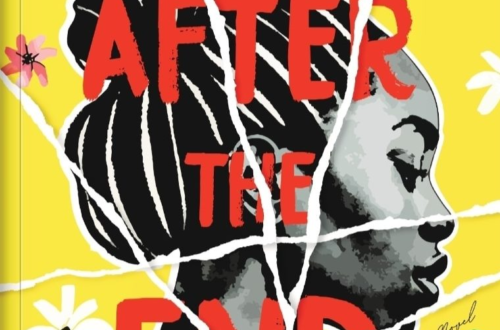


African literature scholar and translator Meg Arenberg has been announced as one of ten awardees of the 2024 PEN/Heim Translation Fund Grant for her translation-in-progress of Zanzibari novelist Ali Hilal Ali’s Kiswahili novel Mmeza Fupa, 2017 fiction selection of the Safal-Cornell Kiswahili Prize for African Literature. Mmeza Fupa was one of 23 Notable Kiswahili Novels profiled in Brittle Paper in 2020, and is rendered as Swallower of Secrets in Arenberg’s English translation. Arenberg’s translation is the fourth translation project from Kiswahili to be supported by the fund in 16 years, and the first by a Zanzibari author.
In their citation, the judges wrote:
Ali Hilal Ali’s novel Swallower of Secrets bustles with compassion for the complexity and messiness of life. Questions of friendship, kinship, and community brush up against explorations of ambition, trauma, and how cultures survive across generations. Hilal Ali’s meditations on what it means to leave one’s home or stay as it changes will resonate with readers interested not only in the local and global aftereffects of migration but also all those curious about the ways people and places weather an ever-evolving modern world. Meg Arenberg’s deft translation limns nuanced portrayals of characters in this fictional yet vividly real East African city. Her prose embraces poetry, unlocking the lyric possibilities within descriptions of landscapes, of passing generations, of expressions on human faces. Swallower of Secrets keeps curiosity and magical realism close by, inviting readers to wonder their way into the universal struggles of people finding their way through life in a city on the brink.

However, the announcement of these awards comes amidst mounting criticism of PEN America, the literary organization that was gifted the endowment that funds the grants, for its equivocating stance on Israel’s assault on Palestinian human rights. A number of prominent writers, including Maaza Mengiste, Hisham Matar, Michelle Alexander and Naomi Klein published a letter earlier this month publicly declining to participate in this year’s PEN World Voices Festival, after more than 600 writers and poets signed an open letter in early February condemning the organization’s failure to take a more principled stance.
In a Twitter thread following the announcement of this year’s PEN/Heim awards, Arenberg expressed conflicting feelings, recognizing the importance of the award for supporting the undervalued work of literary translators and the desire to celebrate writing in African languages in particular, while also joining others in criticizing PEN and admitting a pall over the award by its association with that organization. She sent Brittle Paper her statement in full:
As PEN America announces its annual literary grant awards amidst a cascade of criticism for its conspicuous failure to stand against Israel’s ongoing genocide of Palestinians in Gaza (including the targeted killing of over a hundred writers and journalists, and utter destruction of cultural and academic infrastructure), I can’t stop thinking about the ways that culture, institutions, our work, our lives, are mired with colonial violence. I applied for a PEN/Heim grant last summer because it is one of vanishingly few awards dedicated to literary translation (and particularly emerging translators) anywhere in the Anglo-American lit world. We need awards like this – and the labor and dedication of translators like Nicholas Glastonbury, Jenny Bhatt, Aaron Coleman, Edwige-Renée Dro, Lisa Hoffman-Kuroda, Kira Josefsson, Lina Mounzer, Ena Selimović, Declan Spring, and Alex Valente who read hundreds of applications – to have any hope of shifting cultural parochialism in the US. Many previous winners have said how the award made the difference in getting their translations noticed by publishers. But at what price do we seek these institutional validations? I want to celebrate these awards, the intimate labor that goes into literary translation and the collective effort to make it more visible; I want to celebrate writing in African languages and particularly Ali Hilal’s beautiful novel in Kiswahili which I am lucky to have been entrusted with. I am grateful to these judges whose work I deeply respect, some of whom have publicly broken with PEN in these months of failure to stand up for Palestinian human rights, but I can’t help feeling a sense of shame hanging over this award by association. The very notion of literary awards feels perverse in fact, in the face of genocide, and our utter failure to stop it.
One of the judges of the prize, Nick Glastonbury, also reiterated Arenberg’s position and his criticism of PEN America with the following tweet: “I would so love to be able to celebrate the winners of the PEN/Heim Translation Grants without the pall cast by the moral rot of PEN America in its complicity in the genocide of the Palestinian people and its ongoing, abject failure to live up to its institutional mission.”
Even as Arenberg and several other writers and translators join the many voices in the literary community in their vocal disappointment with large power-wielding institutions like PEN America, there is no question that projects like this one hold great value for the literary future of the diverse, multilingual African continent, and require a robust and supportive framework.



